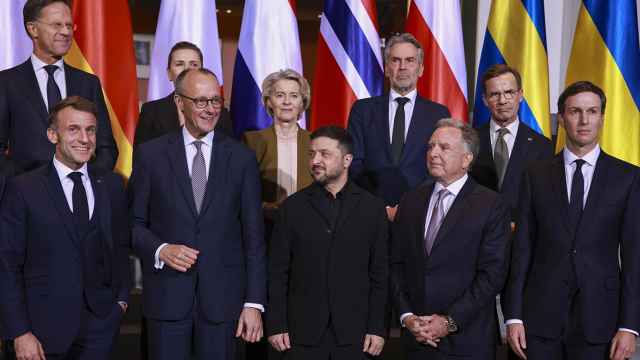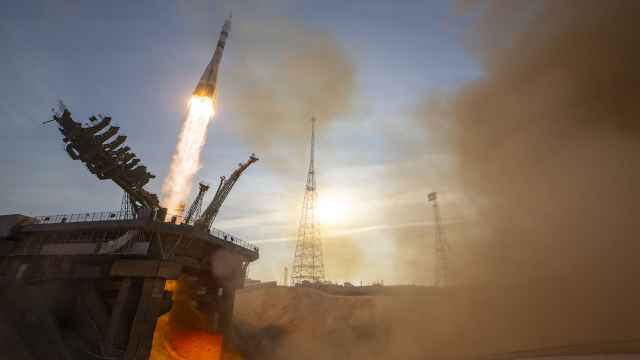ASTANA, Kazakhstan — Belarus said Wednesday that it would give up its stockpile of material used to make nuclear weapons by 2012.
The arrangement was announced on the sidelines of an international security meeting in Kazakhstan by U.S. Secretary of State Hillary Rodham Clinton and her Belarussian counterpart, Sergei Martynov.
The announcement is a significant step forward in efforts aimed at keeping nuclear materials out of the hands of terrorists, and follows similar commitments made by other former Soviet republics, including Kazakhstan.
"The United States intends to provide technical and financial assistance to support the completion of this effort as expeditiously as possible," the State Department said in a statement after the meeting.
Belarus in 1994 gave up the nuclear weapons it inherited in the breakup of the Soviet Union, but it retained its highly enriched uranium stocks.
Interfax quoted Belarussian President Alexander Lukashenko in April as saying his country has "hundreds of kilograms" of weapon-grade as well as low-enriched uranium, and that it was being used only for research purposes.
According to the James Martin Center for Nonproliferation Studies at the Monterey Institute of International Studies, Belarus has 170 kilograms of highly enriched uranium at its Sosny nuclear research institute, but other unofficial sources have made estimates as low as 40 kilograms, which would be enough to make at least several nuclear bombs.
A senior State Department official told reporters in Astana that Belarus would transfer 485.01 pounds (220 kilograms) of highly enriched uranium to Russia under terms of the agreement. But he said he could not immediately say how much of that was enriched sufficiently to produce nuclear weapons.
The official, who spoke on condition of anonymity to discuss confidential details of the Belarus arrangement, also said that as part of the deal, Belarus would acquire a nuclear reactor that operates on lower-enriched uranium.
Wednesday's announcement is a step toward an ambitious goal — set at a nuclear security summit meeting in Washington in April — of securing all nuclear weapons material worldwide within four years. Belarus, along with Iran and North Korea, were not invited to the April summit because of their refusal to cooperate on security of nuclear material.
With its decision to give up its highly enriched uranium, Belarus has secured an invitation to the next scheduled nuclear security summit, to be hosted by South Korea in 2012, the joint U.S.-Belarus statement said.
While traditionally close to Moscow, Belarus has tried to improve ties with Washington and the decision to sign up for U.S. President Barack Obama's nuclear controls was a significant effort to improve relations before elections in December.
The U.S. statement said Clinton and Martynov "acknowledged that enhanced respect for democracy and human rights in Belarus remains central to improving bilateral relations, and is essential to the progress of the country and its citizens."
In July, in an address to an international conference in Poland on democracy and human rights, Clinton cited Belarus as among countries across the globe where a "steel vise" of suppression is "slowly crushing civil society and the human spirit."
(AP, Reuters)
A Message from The Moscow Times:
Dear readers,
We are facing unprecedented challenges. Russia's Prosecutor General's Office has designated The Moscow Times as an "undesirable" organization, criminalizing our work and putting our staff at risk of prosecution. This follows our earlier unjust labeling as a "foreign agent."
These actions are direct attempts to silence independent journalism in Russia. The authorities claim our work "discredits the decisions of the Russian leadership." We see things differently: we strive to provide accurate, unbiased reporting on Russia.
We, the journalists of The Moscow Times, refuse to be silenced. But to continue our work, we need your help.
Your support, no matter how small, makes a world of difference. If you can, please support us monthly starting from just $2. It's quick to set up, and every contribution makes a significant impact.
By supporting The Moscow Times, you're defending open, independent journalism in the face of repression. Thank you for standing with us.
Remind me later.





